As K-dramas grew in scale and scope, PDs emerged from the shadows of the screenwriters. Joined by directors from the film world, they are now injecting their visions into works for the small screen.
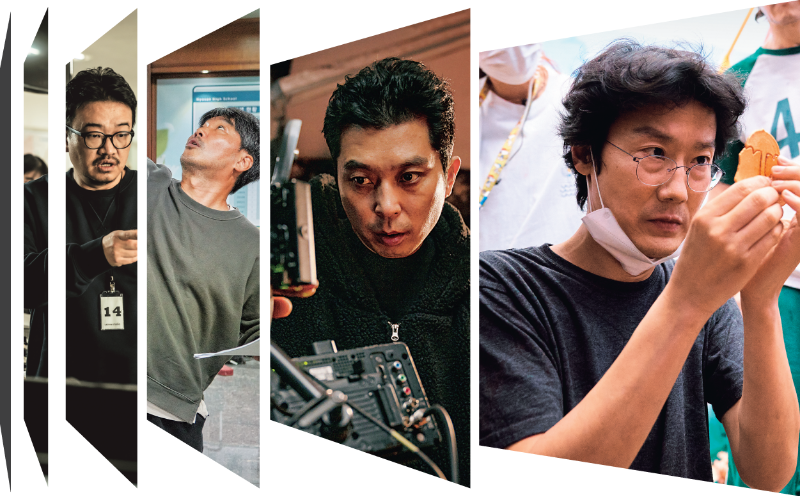
(From left to right) Yeon Sang-ho of “Hellbound,” Lee Jae-kyoo of “All of Us Are Dead,” Lee Eung-bok of “Sweet Home” and Hwang Dong-hyuk of “Squid Game.”
ⓒ Netflix
Many Koreans believe that scriptwriters play pivotal roles in the production of TV series. When they ask, “Whose work is this drama?” they generally want to know who the writer is, not the producer director (PD).
Of course, there are PDs with name recognition. For example, Lee Byung-hoon, who directed “Dae Jang Geum” (a.k.a. “Jewel in the Palace”), one of the first international Korean Wave hits, would raise audience expectations just with his name. But such directors have generally been regarded as operations managers.
Certainly, credit heaped on scriptwriters will not abate. Creating compelling storylines and adjusting narratives to bolster viewership requires an uncanny ability before and during production. But the changed production landscape for TV series over the past decade has made directors a more important factor – and they have stepped forward.
When the production of TV series was not yet the big business it is today, the most important job of PDs was to deliver episodes within tight deadlines and on modest budgets, as well as communicate with actors and writers. But now, as productions have widened in scale and scope, they must exhibit much more creativity and dexterity.
Money Changes Scenery
In the 1990s and early 2000s, K-dramas were mostly in-house productions of TV channels. Then, as the Korean Wave spread to China, Japan, and Southeast Asia, independent production companies took the reins and the size of their investments subsequently increased.
To ensure sufficient funding, broadcasting and streaming rights are now sold before filming begins. The highly popular “Descendants of the Sun,” which aired on KBS2 in 2016, became a template. The production budget of 13 billion won (then approx. 10.4 million US dollars) was covered before the series was aired simultaneously in Korea and China. Before then, virtually no screenwriter had dared to write a script that required a hefty budget. However, writers’ imagination was liberated with the pre-production sales formula. They dove into all types of genres, including thrillers, crime, science fiction and fantasy, and even included scenes outside Korea and other expensive script demands.
With “Descendants of the Sun,” the general perception of PDs also turned a page. Its writer, Kim Eun-sook, went on to spin the fantasy “Guardian: The Lonely and Great God,” and followed it up with the blockbuster period drama “Mr. Sunshine.” All three works were directed by Lee Eung-bok, putting him in the conversation for their success. Lee then expanded his spectrum with his monster horror offering “Sweet Home,” a 2020 Netflix original series.
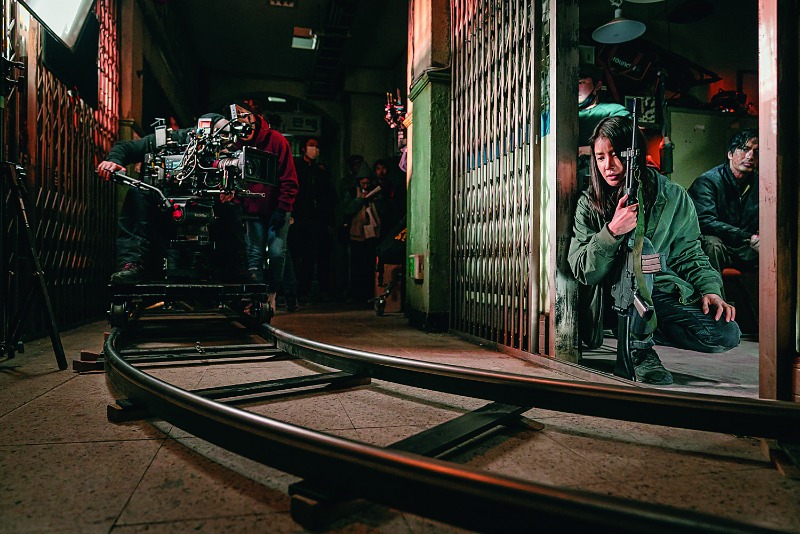
A scene from “Sweet Home,” a monster horror series in which director Lee Eung-bok stepped outside his usual genre. Stable financing has encouraged directors to stretch themselves more.
ⓒ Netflix
CrossoverKorean film directors traditionally steered away from working on TV series, which have notoriously tight production schedules. However, video streaming services and improved pre-production systems have encouraged them to join TV productions. Today, they no longer fall into neat categories of being either film or TV directors. The line between the two entertainment industries has become blurred, with directors frequently working in both realms.
Film directors have produced numerous K-dramas that attracted global attention via Netflix, which has invested heavily in Korean productions. For example, Netflix’s “Kingdom” was directed by Kim Sung-hoon, whose 2014 action thriller “A Hard Day” competed in the Directors’ Fortnight at the Cannes Film Festival. Before Hwang Dong-hyuk won the Emmy Award for his direction of the 2021 Netflix smash hit “Squid Game,” he directed the films “Miss Granny,” which was remade in many countries, and “The Fortress,” which received several awards at film festivals at home and abroad. Yoon Jong-bin, who directed Netflix’s “Narco-Saints,” is also the director of “Nameless Gangster: Rules of Time” and “Spy Gone North,” which earned him awards at many renowned film festivals.
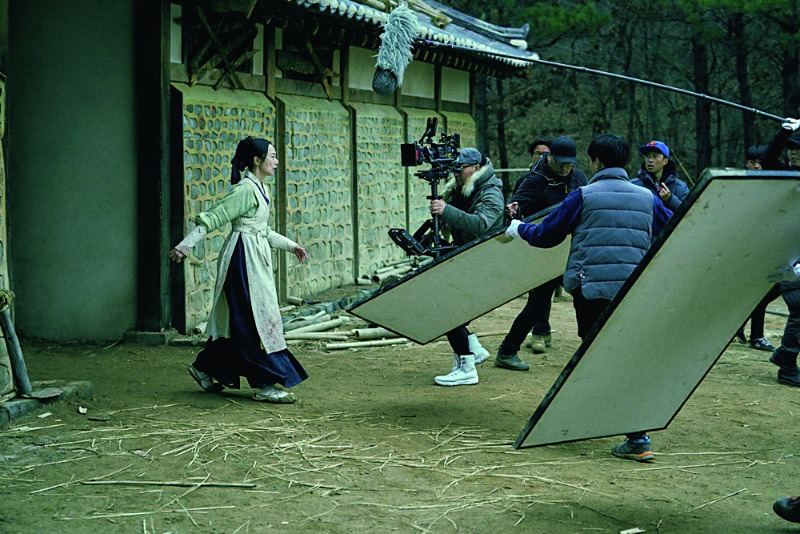
Actor Bae Doona portrays a nurse in the horror series “Kingdom.” Director Kim Sung-hoon d a new type of zombie, utilizing elements of the Joseon Dynasty, the time period of the drama.
ⓒ Netflix
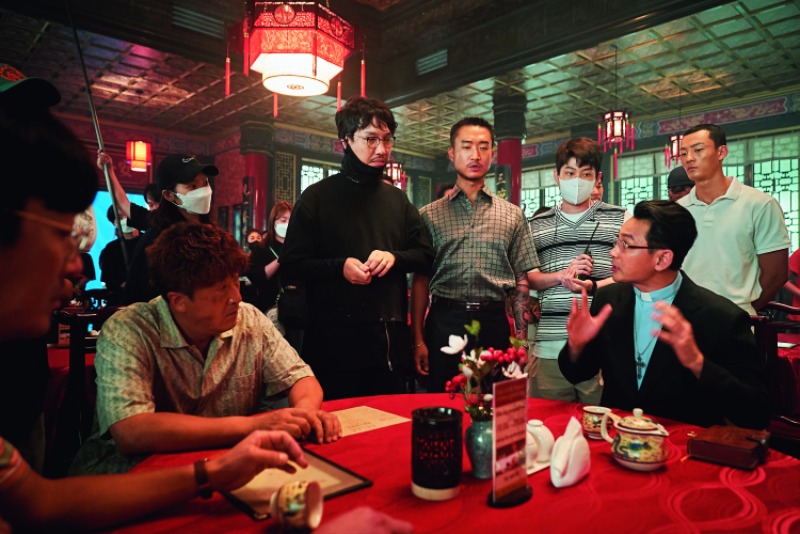
Director Yoon Jong-bin prepares actors for a scene in “Narco-Saints.” He showed his technical maturity in this TV debut work. A director with an impressive filmography, he has been exploring how people adapt themselves into a different world order.
ⓒ Netflix
The crossover has not been one-sided. For example, Yeon Sang-ho was an animation producer before trying his hand at filmmaking. He racked up a huge success in 2016 with “Train to Busan,” a highly acclaimed zombie horror flick, and in 2021, he directed the Netflix original series “Hellbound,” which foreign critics called a “dark fantasy” or “fantasy horror.”
Lee Jae-kyoo started as a PD for TV series, and his early works “Damo: The Legendary Police Woman” (2003) and “Beethoven Virus” (2008) were award winners. He then directed films between 2010 and 2018, before returning to the small screen with the coming-of-age zombie apocalypse series “All of Us Are Dead.” It was released by Netflix in 2022 and proved so popular that a second season has already been ordered.
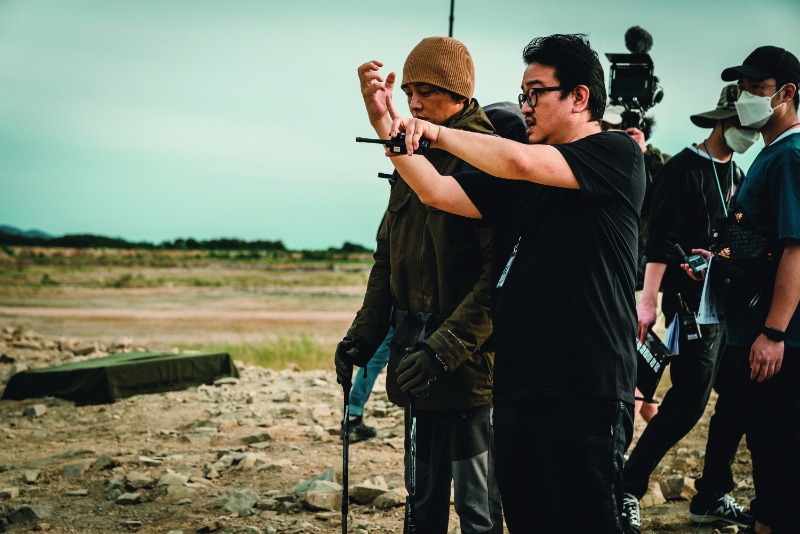
Director Yeon Sang-ho (right) gives directions to actor Yoo Ah-in before restarting the cameras for “Hellbound.” Yeon, who studied fine art, is a director and writer in animation, webtoons, movies and television.
ⓒ Netflix
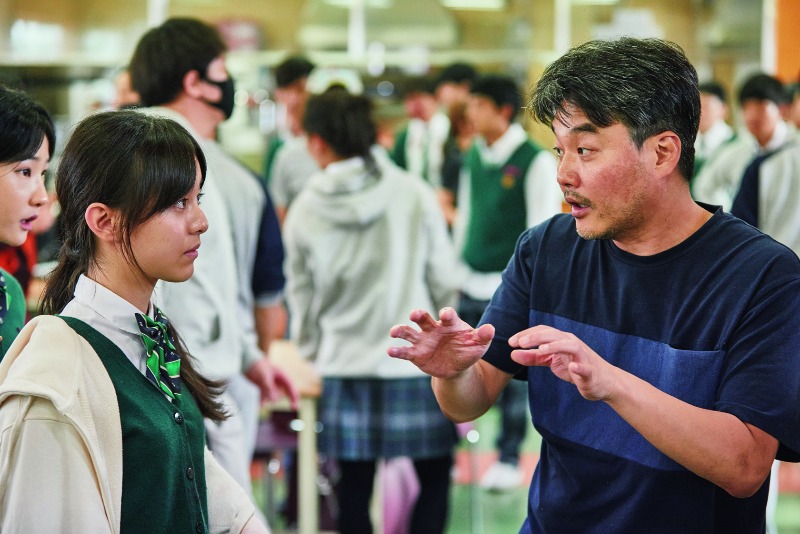
Director Lee Jae-kyoo explains his concepts to actor Park Ji-hu during the shooting of “All of Us Are Dead,” a zombie apocalypse. Lee paid particular attention to details. For example, the students’ uniforms are green, which sharply contrasts with the bloodstains.
ⓒ Netflix
Details and ExpertiseRomance, family, and period shows took the center stage in the 1990s, the revival period of Korean TV series. Then, in the 2000s, through the internet and cable TV, viewers discovered foreign series of more diverse genres than was offered by the Korean TV landscape.
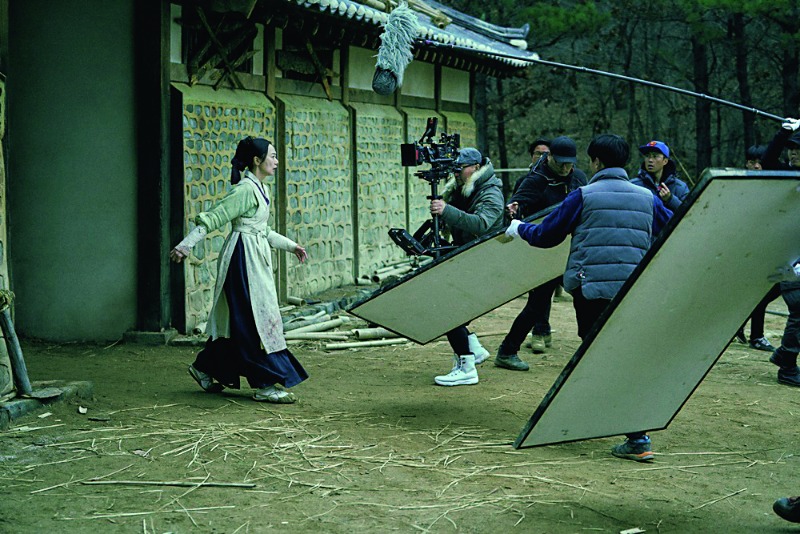
Actor Bae Doona portrays a nurse in the horror series “Kingdom.” Director Kim Sung-hoon d a new type of zombie, utilizing elements of the Joseon Dynasty, the time period of the drama.
ⓒ Netflix
Director Ahn Pan-suk responded with the hugely successful “Behind the White Tower” (2007), a TV adaptation of the eponymous Japanese novel by Toyoko Yamasaki. The realistic medical drama grabbed viewers despite the absence of any romantic elements. It was followed by a host of shows dealing with professionals like doctors, lawyers or detectives, with directors going beyond the faithful representation of their source materials to pursue artistic perfection.
Kim Won-suk epitomized this effort. Mostly known for directing one-episode K-dramas in the 2000s, his detailed and sensitive directing over the next decade resulted in the audience pleasers “Sungkyunkwan Scandal” and “Misaeng,” based on a romance novel and a webtoon, respectively. On the other hand, his retro-style fantasy police series “Signal” and the drama series “My Mister” are shrouded with reflective emotions set against the night streets of Seoul. In “Arthdal Chronicles,” his imagination leaped to pre-historic time and space, never before explored by Korean period dramas. Each of his works ushered Korean TV series into a new realm.
Yoo In-sik is a director who cannot be missed. Described as methodical and meticulous, his works are laden with emotion and individuality, making them rare franchises. Most K-dramas are one and done, but Yoo’s work is a noticeable exception. Two of his series, “Mrs. Cop” and “Dr. Romantic,” have had two seasons. Moreover, the latter is slated for a third season with Yoo back in the director’s chair. In 2022, his most recent series, “Extraordinary Attorney Woo,” spent weeks on Netflix’s global top ten. A second season is expected, too.
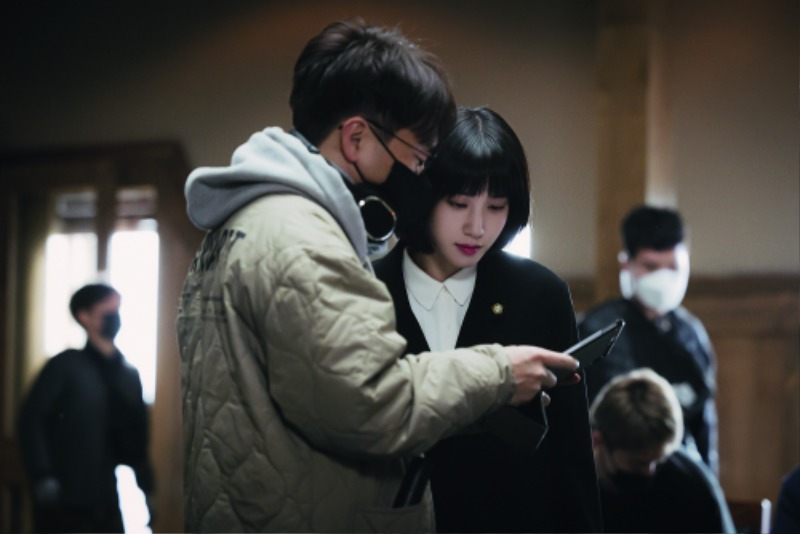
Director Yoo In-sik consults with actor Park Eun-bin before shooting a scene of “Extraordinary Attorney Woo.” Since his debut in 2003, most of Yoo’s works have been a hit, and this show again demonstrated what the seasoned director has to offer.
ⓒ ASTORY
Directors of K-dramas are as serious about guiding actors as they are about mise-en-scène. Excellent acting is often cited as a factor behind the popularity of Korean TV series, and it is the job of the directors to make the most of the synergy between actors and their characters.
So, it is no coincidence that Hwang Dong-hyuk and Lee Jung-jae were recognized at the 2022 Emmy Awards, the top U.S. television honors. For their work in “Squid Game,” they received the Emmys for outstanding directing for a drama series and outstanding lead actor in a drama series, respectively. This illustrates the competitiveness of K-dramas stemming from the collaborative effort of actors and directors.
Jung Duk-hyun Pop Culture Critic